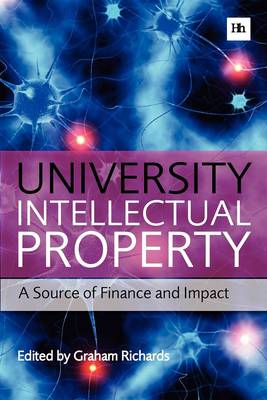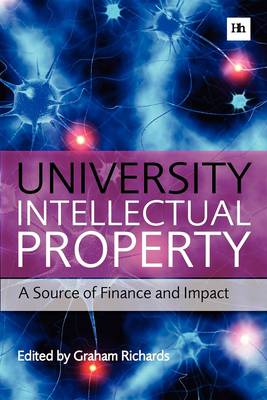
- Afhalen na 1 uur in een winkel met voorraad
- Gratis thuislevering in België vanaf € 30
- Ruim aanbod met 7 miljoen producten
- Afhalen na 1 uur in een winkel met voorraad
- Gratis thuislevering in België vanaf € 30
- Ruim aanbod met 7 miljoen producten
Zoeken
€ 77,95
+ 155 punten
Omschrijving
The traditional role of the university has been to teach and conduct original research, but this situation is changing. As governments judge universities on new criteria - including the 'impact' they have - and as universities are driven to search for finance from new sources, those that run universities are increasingly looking to exploit the intellectual property created by their researchers to help deliver this impact and income. How this should be done, and whether it should be done at all, is subject to much debate. The key issues are: - What constitutes intellectual property? - Do academics or universities own IP? - Does the commercialisation of IP impact academic freedom? - How can IP best be exploited and who should be financially rewarded when it is? - What assistance can governments and other bodies provide? This book investigates these issues. After a review of how the current situation came to be, the views and experiences of a range of experts are presented, including those of a former high court judge, a senior lawyer, a patent attorney and professionals involved in technology transfer. The contributors examine whether the roles of higher education institutions have changed, what academics and universities should be doing, and how technology transfer can be made more effective and efficient. To conclude, a provocative look at the ethics of the situation is presented. This insightful and thought-provoking book will help readers to understand more about an increasingly important aspect of academia and business.
Specificaties
Betrokkenen
- Auteur(s):
- Uitgeverij:
Inhoud
- Aantal bladzijden:
- 164
- Taal:
- Engels
Eigenschappen
- Productcode (EAN):
- 9780857192325
- Verschijningsdatum:
- 16/07/2012
- Uitvoering:
- Paperback
- Formaat:
- Trade paperback (VS)
- Afmetingen:
- 156 mm x 234 mm
- Gewicht:
- 240 g

Alleen bij Standaard Boekhandel
+ 155 punten op je klantenkaart van Standaard Boekhandel
Beoordelingen
We publiceren alleen reviews die voldoen aan de voorwaarden voor reviews. Bekijk onze voorwaarden voor reviews.











